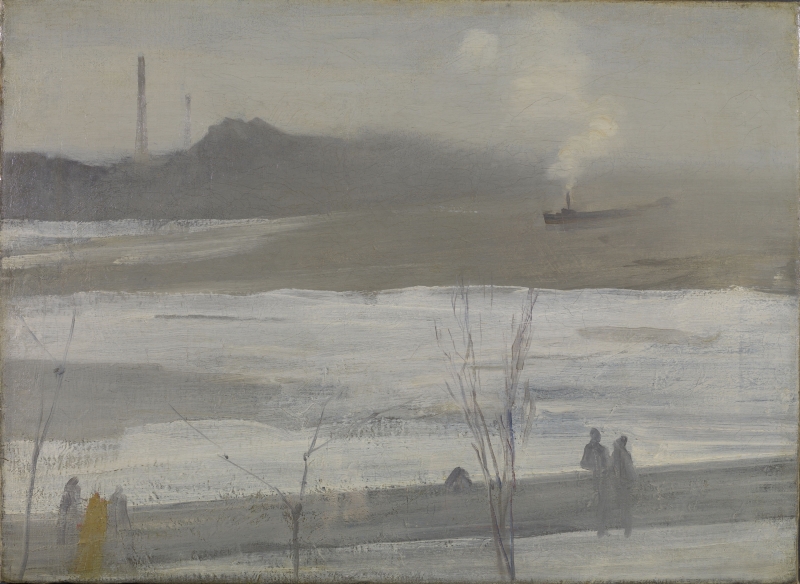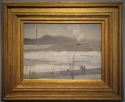Technique
The size of the canvas is roughly that of the French 'toile de 12' (46 x 61 cm) and it may have been acquired in France.
There are signs of extensive alterations made to this painting. There were probably more figures in the foreground, to right of the central tree, and at far right. There may have been another boat or barge on the far side of the river at left. The outline of the spoil heaps, and possibly the position of the chimneys, was changed. Some of the marks may be the result of partly scraping down an earlier composition.
The vigorous brushwork and palette knife work, manipulating the creamy thick texture of the paint, produces a very vivid, fresh effect.
Conservation History
Despite its long and varied life, and despite some cracking that bears evidence to the reworking of the composition, the painting is in quite good condition.
Frame
- 1864/1867: the style and whereabouts of the original frame are unknown.
- 1887: flat Whistler, reeded cassetta frame with plain frieze, oil gilt, English, made and labelled by Frederick Henry Grau (1859-1892), [75.5 x 92.3cm (29 ¾ x 36 3/8") [MW] 15.8cm (6 ¼"), currently on painting.
The current frame, though probably not the original, is a period frame that Whistler may have placed on the canvas in the spring of 1887. On 14 March 1887 he wrote to the owner, Mme Venturi, promising the safe return of the painting after an exhibition 'in the same frame.' He then scratched out the words ‘in the same’ and replaced them with ‘it’s proper frame’, and added, 'I ... will therefore provide the frame of exquisite proportion in which the above beautiful work shall be ever after preserved.' 1 This written amendment suggests that the frame was changed.
This is also suggested by the placement of a Grau paper label on the verso, a practice Grau used when he first began working with Whistler, but abandoned after 1890.
The number and style of any frames on this canvas before the Grau-made frame is uncertain. There could have been a frame similar to the 1864 Whistler frames, or the missing frame could have been a Flat Whistler frame containing painted decoration. 2
Last updated: 6th February 2021 by Margaret












